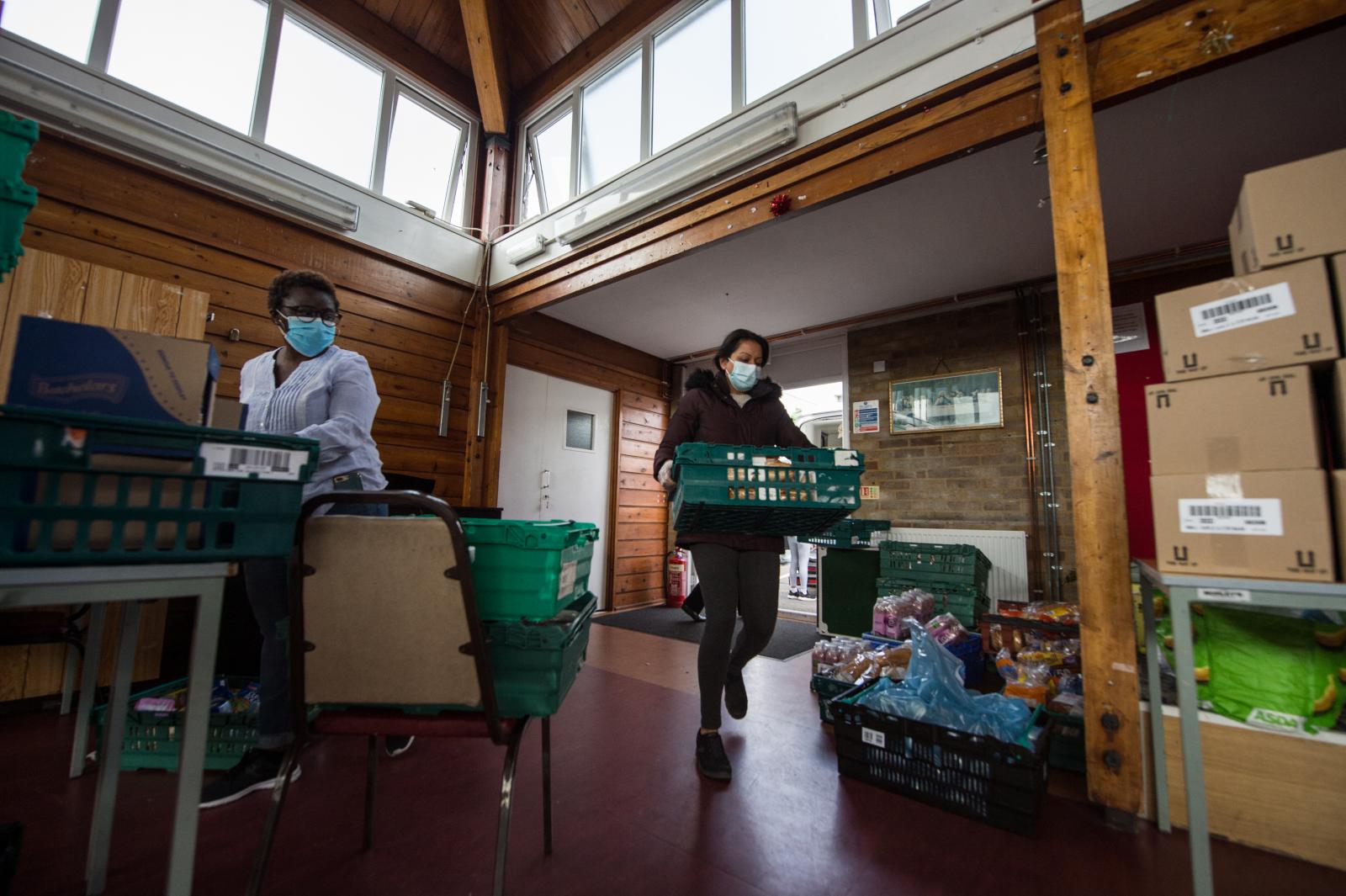On 6th October, the Government is expected to reduce Universal Credit by £20 a week. This would be the ‘biggest overnight cut to social security in the last 70 years, taking away £1,040 a year from low income families’, explained Anna Gavurin, Coordinator of the Caritas Food Collective at Caritas Westminster.
Caritas Westminster has joined with over a thousand church leaders in writing to the Prime Minister, asking for the plans to cut Universal Credit to be stopped. The letter, coordinated by Church Action on Poverty and Christians Against Poverty, calls for the Government to ‘choose to build a just and compassionate social security system that our whole society can have confidence in’. This letter has been signed by John Coleby, Director of Caritas Westminster and Fr Dominic Robinson SJ, Chair of the Westminster Diocese Justice and Peace Commission.
Emergency food relief projects in the Diocese of Westminster have shared their concerns about the cut with Caritas Westminster. One volunteer from a North London parish food bank said:
‘We have been supporting hundreds of people weekly throughout the pandemic and now that we are emerging from it we do need to give people a chance to get their lives back on track and not plunge them into further debt … The effect of cutting Universal Credit at a time where people are trying to get out of poverty is extremely damaging and will have a knock on effect on the ability of individuals and families to get through the autumn and winter months.’
At this food bank, volunteers have seen huge increases in demand over the last 18 months. A recent survey of 100 of their clients found only one person was not in receipt of Universal Credit, legacy benefits or state pension. Responding to these figures, Anna Gavurin said: ‘Even before the cut comes in, these clients are unable to get by on the state support they receive and have to turn to food banks for emergency help. The cut will only push them further into poverty and insecurity.’
This is not an isolated case. Across the Diocese of Westminster, Caritas Westminster has seen high levels of food insecurity and parish and school food relief projects working hard to ensure no one goes hungry. Between April and June 2021 more than 50,000 meals and food parcels were distributed by just 35 parishes and schools. 43% of these food relief projects are reporting low income as one of the top issues affecting those they serve. A further reduction in income will exacerbate this need.
The planned cut to Universal Credit comes at the same time as the furlough scheme ending, energy prices rising, a shortage of hauliers affecting the UK’s food supply, and an upcoming increase to National Insurance. The Joseph Rowntree Foundation predicts that with the cut to Universal Credit and the rising cost of living the average low income family will soon be £1,750 worse off a year.
As another volunteer running a parish food bank in London said:
‘What has been more worrying in the last few weeks, is that we have seen a 30% increase in demand for food, with more of our clients losing their jobs, as furlough comes to an end. The withdrawal of the £20 Universal Credit payment next month will have a dramatic impact on the families that we serve and I worry we will see yet another spike in the demand for food in the coming weeks.’
Caritas Westminster is encouraging people to write to their MPs and ask them to stop the cut to Universal Credit and keep the lifeline it provides.
Full text of the letter to the Prime Minister and all signatories can be found here.
Image: Mazur/CBCEW.org.uk. Image taken in May 2021 at the 'Food For All' food hub at the Church of English Martyrs, Wembley Park.




